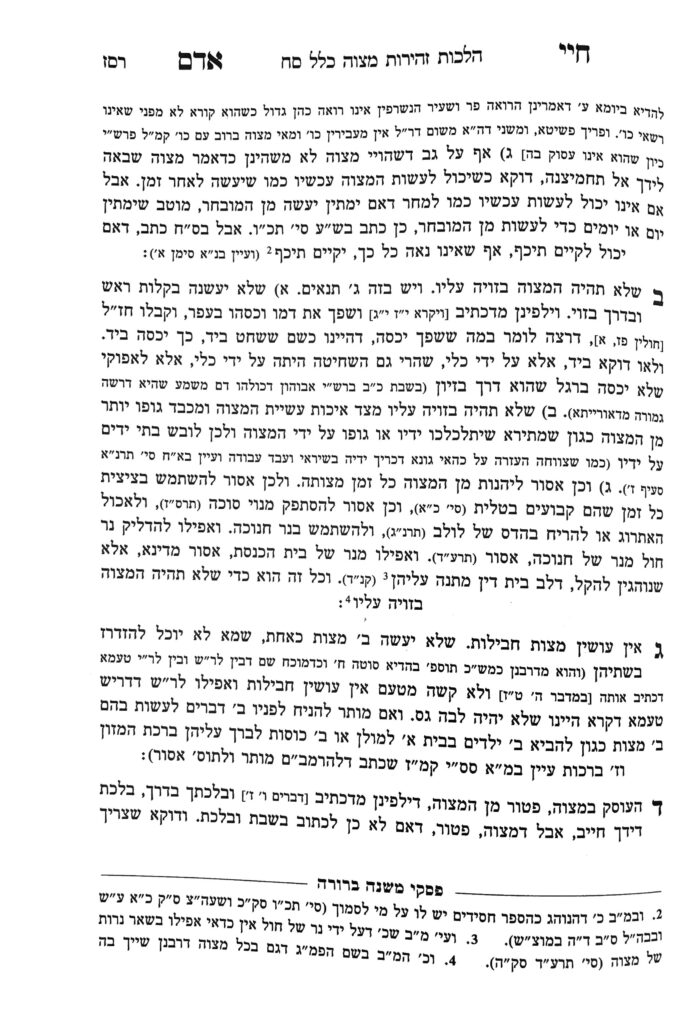We are beginning siman 4. The Chayei Adam will discuss the concept of oseik b’mitzvah patur min hamitzvah, that when one is involved with mitzvah A they are not chayav to switch to mitzvah B.
The Chayei Adam writes that the source for the halacha that oseik b’mitzvah patur min hamitzvah is the pasuk u’velechtecha baderech. Chazal understand that the pasuk is obligating a person in limud hatorah when they are going on their way, meaning they are doing something of their own choice. The implication is that if one is traveling for mitzvah purposes, they would be patur from limud hatorah due to the mitzvah they are currently fulfilling. This concept applies to all mitzvos, not just limud hatorah.
The Chayei Adam understands that even if one is not actively engaged in a mitzvah, but is traveling to perform a mitzvah, it is considered part of the mitzvah. The Gemara gives the example of someone traveling to redeem a captive. Although the actual mitzvah is only the redemption, traveling is necessary for the mitzvah. Thus, the Gemara says that one traveling for such a purpose is patur from sukkah, because their entire travel is for the purpose of the mitzvah.
The Gemara gives a second drasha to understand this concept. The pasuk is written in the possessive (beshivtecha and velechtecha, as opposed to besheves and beleches), which indicates that the reason for the chiyuv limud hatorah is because they are doing their own, personal actions. However, if a person is doing so because of a mitzvah, they are not chayav.
(The Chayei Adam will discuss later why the Gemara requires two derashos.)
The Chayei Adam clarifies that the idea that one is patur from mitzvah B is only when the mitzvah B will require tircha (effort) which will take one away from mitzvah A. For example, the Gemara says that shluchei mitzvah discussed above are patur from a sukkah even at night. Although they are not traveling at night and not being oseik in a mitzvah at night, since it requires tircha to make a sukkah, it would diminish their abilities to perform their mitzvah, so they are patur. Similarly, if one is digging a grave or watching a meis, even if the neis is not their own (ie, not a relative), they are patur from shema and tefilla even when they are resting.
On the other hand, the Chayei Adam writes that if one finds a sukkah already made, and can do the mitzvah without tircha, they are chayav.
We will clarify other opinions in upcoming shiurim, be’ezras Hashem.
Summary
The Chayei Adam holds that oseik b’mitzvah patur min hamitzvah applies when there will be tircha involved in performing the second mitzvah. However, if there is not tircha involved, they are chayav to perform the second mitzvah as well.



